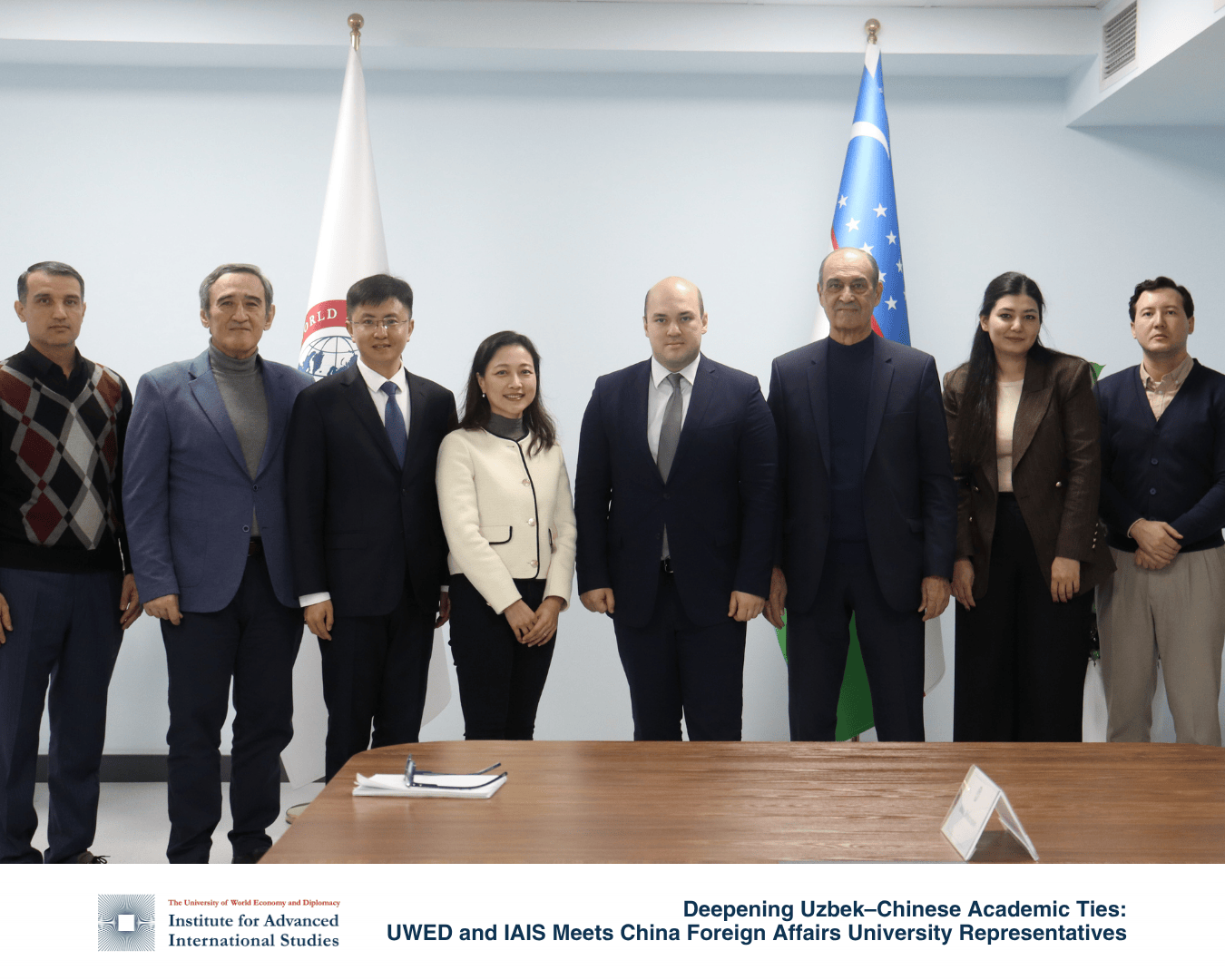
On 7 November, the Institute for Advanced International Studies (IAIS) at the University of World Economy and Diplomacy (UWED) hosted a working meeting between Dr Akram Umarov, First Vice-Rector for Academic Affairs of UWED and Director of IAIS, and a delegation from China Foreign Affairs University. The Chinese side was represented by Associate Professors Liu Ying and Zhang Jian, who were received together with Dr Abdusamat Khaydarov, Director of the Diplomatic Academy at UWED, Mr Odil Gafarov, Deputy Director of IAIS, Madina Abdullaeva, Dean of the Faculty of International Relations of UWED, Gavkhar Mirkhalilova, Head of the Office for International Academic Cooperation at UWED, and Dr Abbos Bobokhonov, Head of the Center for Asia-Pacific Studies at IAIS.
During the discussions, the participants exchanged views on current trends in international relations in Eurasia, with particular attention to the evolving role of Central Asia in the context of China’s engagement with the region. The sides underscored the growing importance of academic diplomacy in deepening mutual understanding between Uzbekistan and China, including through joint research on connectivity, trade, and security issues. Special emphasis was placed on the potential for comparative studies involving Central Asia, East Asia and broader Asia-Pacific dynamics.
The parties also explored practical avenues for expanding cooperation between UWED and IAIS and China Foreign Affairs University. Among the issues discussed were the development of joint research projects, co-authored policy papers, guest lectures by leading scholars, and the organization of bilateral conferences and roundtables on foreign policy and regional studies. Prospects for student and faculty exchanges, joint courses were considered as important tools to internationalize the educational process and provide young researchers with first-hand exposure to Chinese and Central Asian academic environments.
Concluding the meeting, the participants expressed their shared interest in transforming this dialogue into a long-term partnership framework. The meeting confirmed the mutual readiness of both institutions to deepen cooperation in training a new generation of specialists in international relations and to contribute to a more nuanced understanding of the processes shaping the wider Asian region.